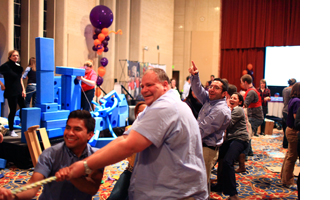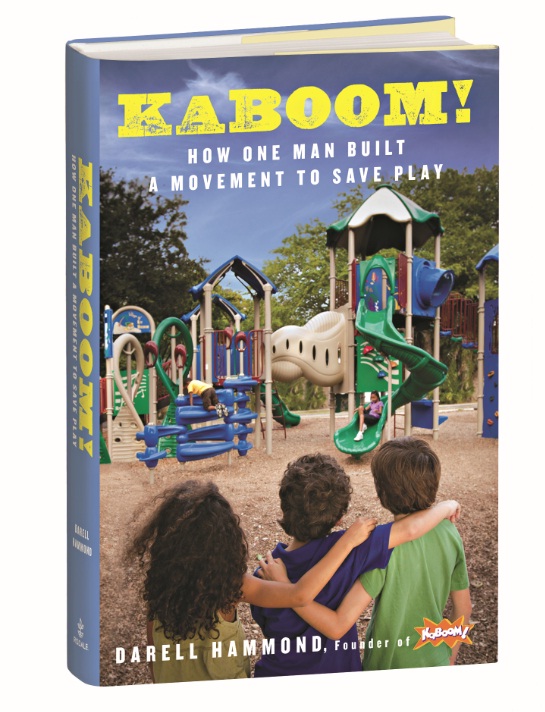There is one noticeable difference between childhood and adulthood -- adults aren't really "supposed" to play. Oh, they can play sports or board games, and even occasionally participate in scavenger hunts, but grown-ups can't go run around screaming just because they feel like it, and it's certainly not socially acceptable to chat with imaginary friends.
Actually, even kids these days don't have much time for free play. Some of you may have heard about the New York mom who sued her child's preschool because the kids there played too much. According to the suit, "The school proved to be not a school at all, but just one big playroom." The mother worried that all this play was ruining her tot's chances of getting into an Ivy League college.
Whether or not you've seen last year's documentary Race to Nowhere -- which shows one grim shot after another of children and teens rubbing their eyes in front of computer screens, falling asleep at their desks, and staring listlessly out car windows as they are rushed from one activity to the next -- it's no secret that today's young adults are over-tested and over-scheduled.
According to the Institute for Social Research, between 1981 and 1997 kids lost 12 hours of weekly free time while time spent in structured sports doubled. Time spent on homework increased by 50 percent. And young people's daily screen time now hovers around 7.5 hours per day.
The result? We're creating a generation of children who can follow rules but who are at a complete loss when it comes to innovating, designing, tinkering, or doing anything that requires drawing from their own imaginations.
And here's the irony: While research shows that American creativity is declining, creativity is becoming a more sought-after asset in today's economy. John Howkins, author of The Creative Economy, points out, "New ideas, not money or machinery, are the source of success today, and the greatest source of personal satisfaction, too."
 I've always said that play is the best natural resource in a creative economy. I hope that you got a chance to play growing up -- but don't stop now! (I never stopped -- that's me at left playing tug-of-war with my staff.) Play exercises both your physical and creative muscles. It helps you move around, solve problems, challenge yourself, and think in new ways. Not to mention that it's just plain fun.
I've always said that play is the best natural resource in a creative economy. I hope that you got a chance to play growing up -- but don't stop now! (I never stopped -- that's me at left playing tug-of-war with my staff.) Play exercises both your physical and creative muscles. It helps you move around, solve problems, challenge yourself, and think in new ways. Not to mention that it's just plain fun.
Maybe you're too "grown up" to scream at the top of your lungs on a whim or talk to imaginary friends, but there are still plenty of ways to play. Get a group of friends together and build something from scratch. Climb a tree. Start a drum circle with some buckets and sticks. Roll down a grassy hill. Throw a costume party just for the heck of it. Spend a weekend without looking at a single screen. Paint faces on rocks and place them around your neighborhood. Invent a board game. The possibilities are endless!
I know everyone tells you to work hard, and I echo that wise advice. I never would have become a CEO without putting in hours and hours of serious work. But I also never would have become a CEO without all the serious play I did as a child and young adult -- and which I still do to this day. Work and play go hand in hand, and both are crucial to your success and happiness.
Now go play!
 Learn more about why play is important and and how it helped me become a CEO--my new bestselling memoir, KaBOOM!: How One Man Built a Movement to Save Play, makes a perfect graduation gift!
Learn more about why play is important and and how it helped me become a CEO--my new bestselling memoir, KaBOOM!: How One Man Built a Movement to Save Play, makes a perfect graduation gift!